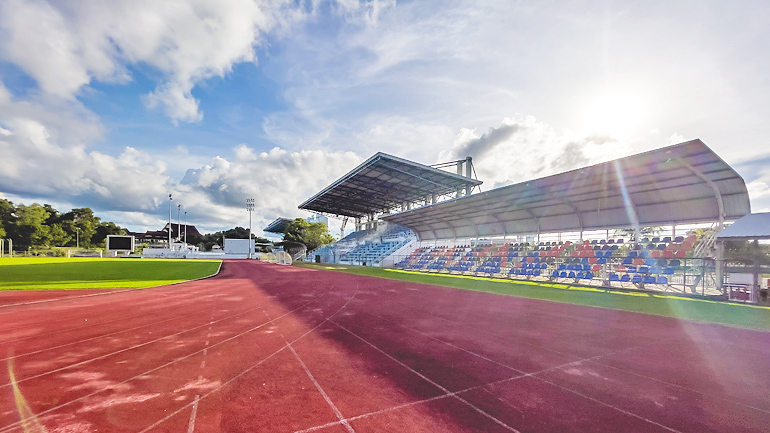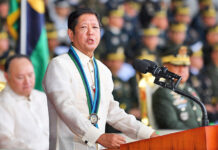Fadhil Yunus
Every professional athlete aspires to win a medal in major competitions and solidify their standing as one of the best in their field.
Since not all athletes are fortunate enough to claim a medal in their professional career, accomplishments can also be measured by setting national records or providing the best or fastest time from the country which they represent.
While setting world, Olympic and continental records may be a step too far for some athletes, they can fall into a different focus by attaining a national record.
Brunei Darussalam has over the years produced national athletes whose immediate target is to achieve a national record especially in regional and international competitions.
While winning a medal will be understandably be a huge ask for the country’s representatives owed to the exceedingly high standards of the competition, it can be argued that setting a new national record could be seen as the bare minimum.
Setting a national record could also enhance the opportunities of progressing to the latter rounds of a competition, which is also a goal of the ordinary athlete especially in an event where the chances of obtaining a medal are slim due to status of opposition.

With this in mind, Brunei athletes enter every major competition with the aim of setting a national record, thus creating a new benchmark and narrowing the gap with the qualifying standard times dictated by the respective sporting bodies.
These sporting bodies in question include the World Athletics and the International Swimming Federation (FINA), which governs athletics and aquatics respectively. To be viewed as among the leading group of swimmers in the world, clocking one of the fastest times of the year is one of the prerequisites as an athlete’s time of completion translates to a high-level performance.
With the country’s top athletes having to contend with vast competition across the globe, another alternative is to continuously update the country’s best time which also evidently help further the development of the sport.
Setting a new national record is a good sign, especially for athletes who want to qualify to major international meets such as the World Championships.
The ability to set a national record could provide a knock-on effect to the popularity of the sport as it carries an impact to lead and inspire generations whilst also draw newcomers in great numbers.
In 2015, athletics – specifically in short distance running – gained the attention of the entire nation when national athlete Muhammad Fakhri Ismail set a new national record and advanced to the final round of the 100m in the 28th Southeast Asian (SEA) Games in Singapore.
A single performance triggered great interest to a sport which could be said less favoured in terms of obtaining medals, with combat sports such as wushu, pencak silat and taekwondo or even sepak takraw better-placed.
Muhammad Fakhri’s record-breaking accomplishment reignited the popularity of the sport, which subsequently scaled to new heights following similar success from his compatriot Muhammad Noor Firdaus Ar-Rasyid bin Haji Abdul Idris.
The national sprinter set a new national record to reach the final of the 200m in the next edition of the SEA Games in Kuala Lumpur, Malaysia two years later.
With the country seeing two of the best talents in the last decade impressing in their respective events, setting a national record has pushed them to pursue more success on the bigger stage.
Following a good showing in Singapore, Mohammad Fakhri went on to perform admirably in the World Championships in Beijing China, where he advanced to the heats round while Muhammad Noor Firdaus clinched silver in the Singapore Open Track and Field Championships.
The men’s relay team also boasts a national record achieved during the Southeast Asian Games in Kuala Lumpur.
Meanwhile in swimming, national athlete Muhammad Isa Ahmad broke the national record in both the men’s 50m and 100m breaststroke event (short course) at the 15th FINA World Swimming Championships (25m) in Abu Dhabi, United Arab Emirates last December.
The country’s leading swimmer is also a national record holder of the 50m breaststroke in the long course event which he achieved during the Southeast Asian Games in Manila, Philippines in 2019.



















































